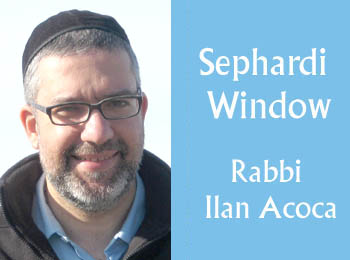Many people ask me about the piyutim. What are they, where do they come from, and are we obligated to sing them?
Piyutim are liturgical songs composed as early as the eighth century and sung during the High Holidays, as well as Shabbatot, yamim tovim, and lifecycle events. The rabbis who composed them were great thinkers and scholars who wrote them to help us to immerse ourselves in the themes of the holidays and to elevate our tfillah (prayer) and our attempts at tshuvah (repentance).
The custom of reciting piyutim in the services is ancient. The Rambam (1135-1204) references them in his Guide for the Perplexed, as does Avraham Ibn Ezra (1090-1167) in his commentary to Kohelet. Ibn Ezra himself composed many piyutim with the intention of having them incorporated in the liturgy of Shabbat and the holidays, and his father was one of the most renowned paytanim (liturgical poets) in history. Rabbi Yehuda Halevi (1075-1141) was an outstanding paytan, as was Rabbi Shlomo Ibn Gabirol (1021-1058). Rabbeinu Bachya (d. 1340) quotes stanzas from famous piyutim in his Chovat Halevavot.
Rabbi Yosef Ibn Migash (1077-1141), the Rambam’s father’s teacher, gave a responsum in which he states that the inclusion of piyutim in the holiday liturgy is an old and universally accepted custom. Even earlier, Rav Saadiah Gaon (882-942) includes piyutim in his siddur and states that he has selected what were in his opinion the best ones, implying that many others were already in circulation by this time.
One of the classic piyutim in the Sephardi tradition, Shema Koli, was written by Rav Hai Gaon (969-1038) himself.
Rosh Hashanah and Yom Kippur are days where we attempt to achieve the mental and emotional state of lifnei HaShem (standing before God). Once in this state, we begin, through prayer, to focus on repentance and the purpose of our lives. Thus, we see that prayer is the central mitzvah (commandment) during the Yamim Nora’im (Days of Awe) and that the piyutim prepare us emotionally for this special experience.
While all Jews have piyutim in their liturgy, they are integral to, and especially so, in the Sephardi tradition. The piyutim serve to connect us to God and to our fellow Jews as well.
One of the most powerful and inspirational moments of the year is Neilah, the final prayer of Yom Kippur, when I hear my congregation sing the well-known piyut, El Nora Alila, written by the famous poet Rav Moshe Ibn Ezra (father of Avraham Ibn Ezra cited above). It is a moment that reminds me of my childhood and brings me to tears of hope and promise for the new year. This piyut is such a profoundly moving way to conclude Yom Kippur.
The beauty of our piyutim in these Days of Awe, and indeed throughout the year, fosters a closeness to God. Let each of us strive this year to tap into the power of the piyutim in order to realize the tshuvah that each of us is seeking.
